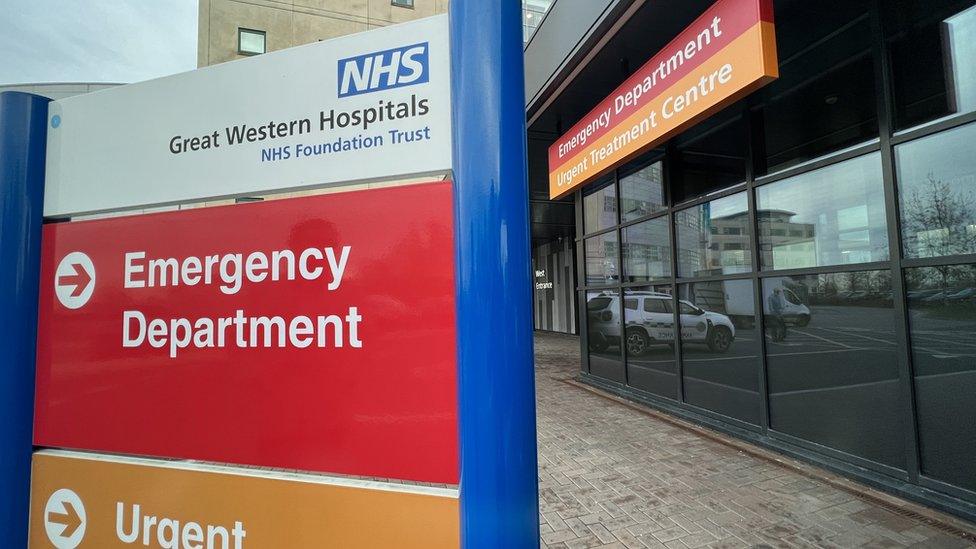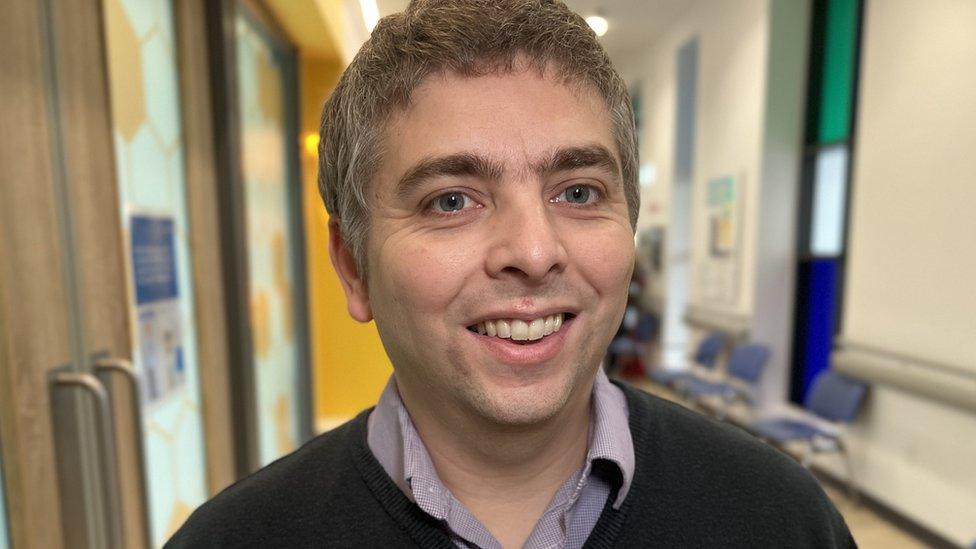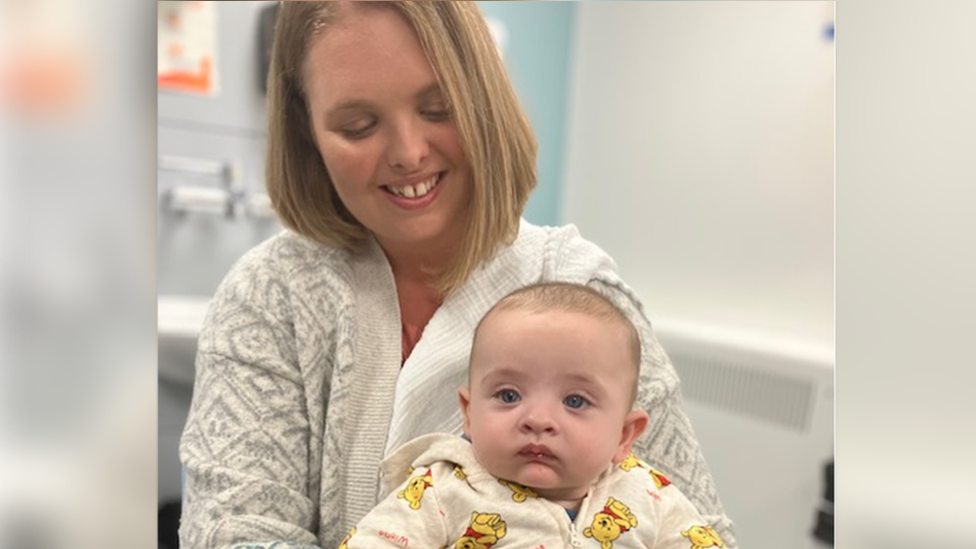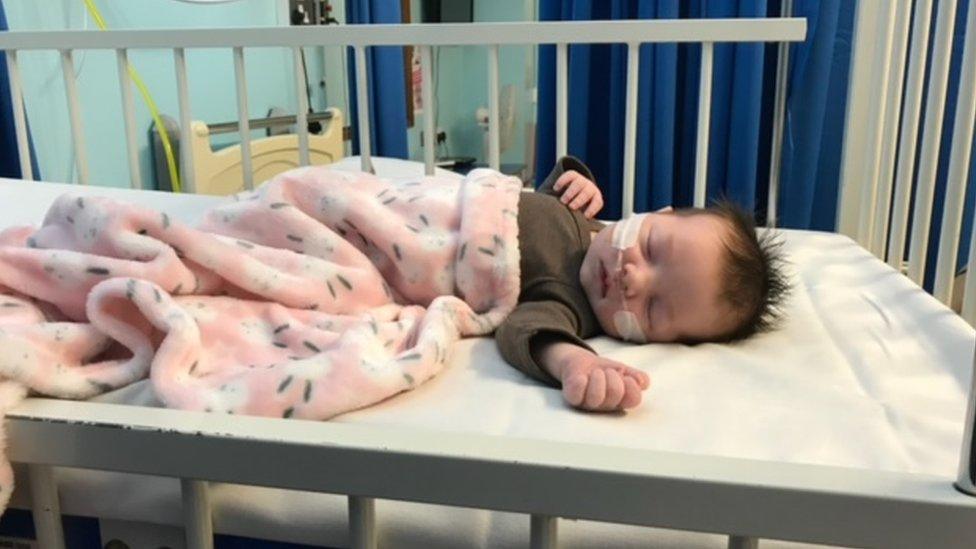Swindon hospital sees rise in respiratory illnesses
- Published

Data from the UK Health Security Agency has shown an increase in the number of patients with a respiratory virus in recent weeks
A hospital is seeing high numbers of children with respiratory illnesses visiting its emergency department.
Last week, the Great Western Hospital (GWH) in Swindon saw nearly 700 children requiring urgent care, many for respiratory illnesses.
To cope with numbers, the hospital is urging parents to only bring their child to the treatment centre in the case of an emergency.
However, staff added their "doors are always open" for patients seeking care.
Respiratory syncytial virus (RSV) is a common winter virus that causes similar symptoms to a cold, including coughs, rapid or laboured breathing and drowsiness.
Attendances to the children's emergency department and urgent treatment centre at GWH were up by more than a third last week, compared to the first week in September.
The number of children attending services with difficulty breathing was more than the previous two weeks combined.

Dr Phil Peacock says the number of patients with respiratory problems dramatically increases in the winter
Dr Phil Peacock, a consultant in paediatric emergency medicine, has advised parents to familiarise themselves with the symptoms of RSV so they know when it is necessary to seek medical care.
"Last week we saw nearly 700 children using our urgent and emergency care services, and this is more than a 30% increase than the number of attendances we had in the first week of September," Dr Peacock said.
"Lots of those are children coming in with coughs, colds, and other respiratory problems."
'Doors always open'
Dr Peacock explained high levels of attendance at the urgent care unit were causing long wait times, as the hospital must prioritise children with more serious illnesses and injuries.
"If parents and carers do want help and they are worried, our doors are always open," he continued.
"What I would ask people to do is just pause before coming to the emergency department. Is there another service that might be more appropriate, that might get their child seen more quickly?"
Dr Peacock has recommended that concerned parents and carers call 111 to seek advice before visiting the emergency department.

Follow BBC West on Facebook, external, X, external and Instagram, external. Send your story ideas to: bristol@bbc.co.uk, external
- Published24 November 2022

- Published10 November 2022

- Published11 October 2017
